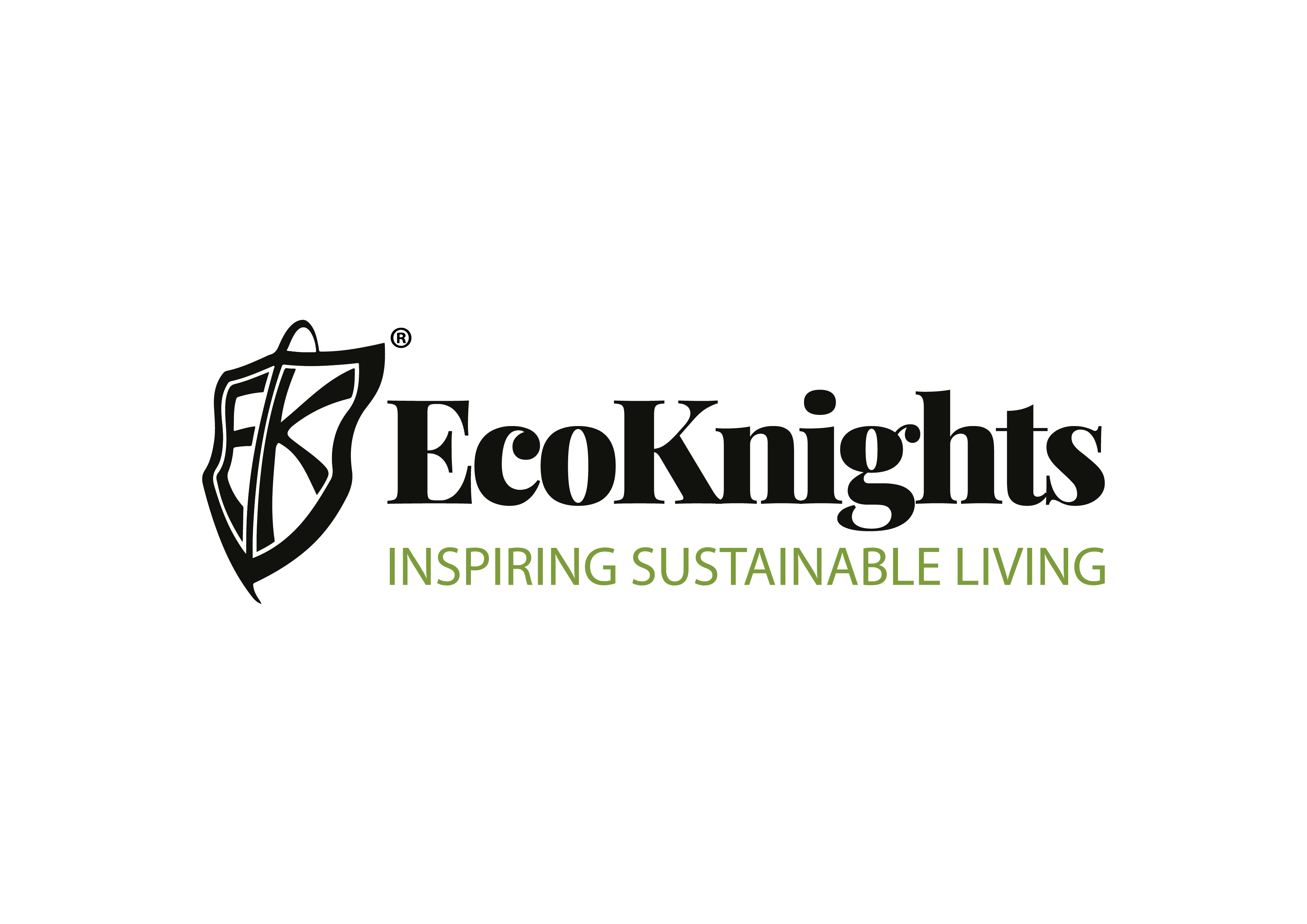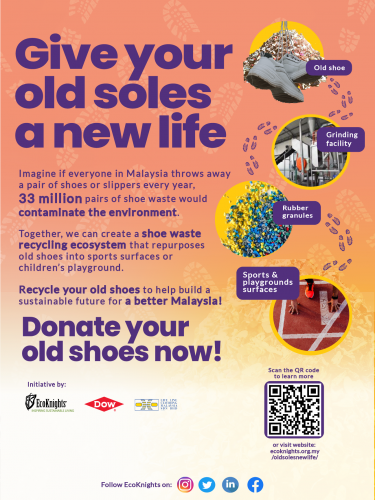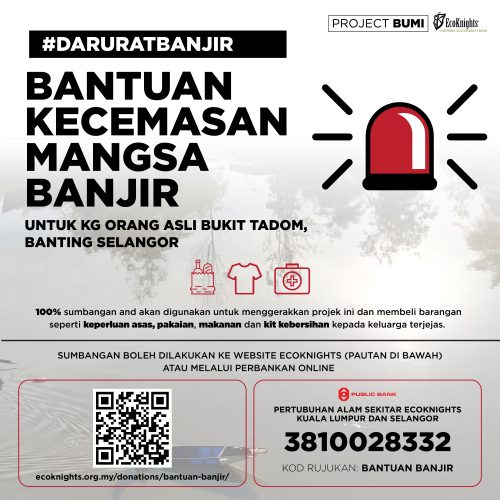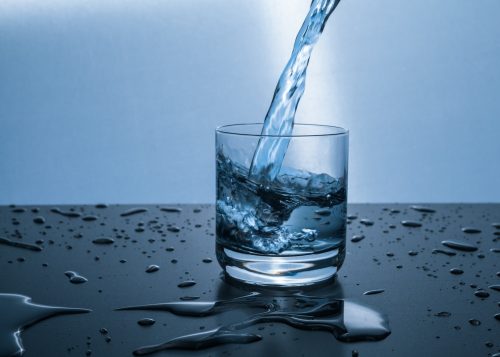Find Out What Happens At The Largest Sewage Treatment Plant In Asia Pacific, Located In KL
- EcoKnights
- January 8, 2018
- 6:06 pm
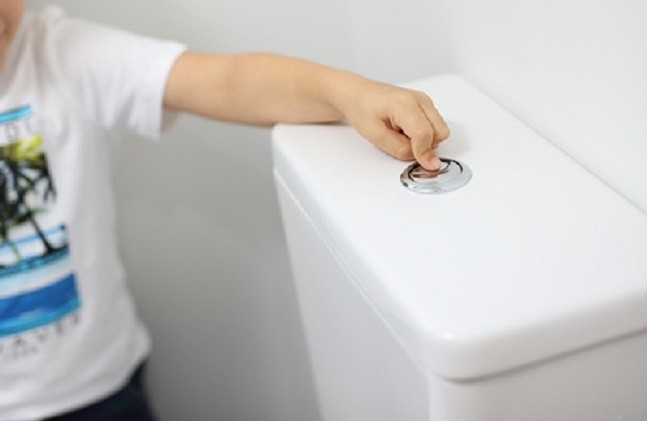
Category: Media Coverage
Published: Monday, 08 January 2018 18:06
Written by EcoKnights

Have you ever stopped to think, what happens to wastewater after we flush the toilet or take a shower?
Let’s face it and admit that most of us take our sewage treatment for granted.
Unfortunately, due to low awareness, our ignorance comes at a price. This can be shown by the deplorable state of our sewage systems due to the unwanted garbage that has been thrown down the toilet, such as diapers, tampons, cigarettes and clothing.
Recently, Indah Water sponsored a video on Instagram account of Malaysian celebrity Caprice, highlighting why sewage systems in Malaysia frequently get clogged.
Besides treating our sewage system as a garbage dump, many Malaysians also neglect to pay for its upkeep. The Star reported in August 2017 that 3.6 million customers of Indah Water Konsortium (IWK) owe a staggering RM1 billion in outstanding bills!
Malaysians should not have an excuse to not pay their sewage bills.
At only RM6 to RM8 per month, Malaysians should not have an excuse to not pay their sewage. Despite the outstanding arrears, IWK continues to operate without reviewing its rate to customers for 20 years, with help from the federal government.
In order to raise awareness about the importance of sewage systems, Malaysian Digest went onsite to an IWK plant to see firsthand the extent of Malaysians lackadaisical attitude towards their wastewater disposal.
Did You Know We Have The Largest And Most Sophisticated Treatment Plant In The Asia Pacific Region?
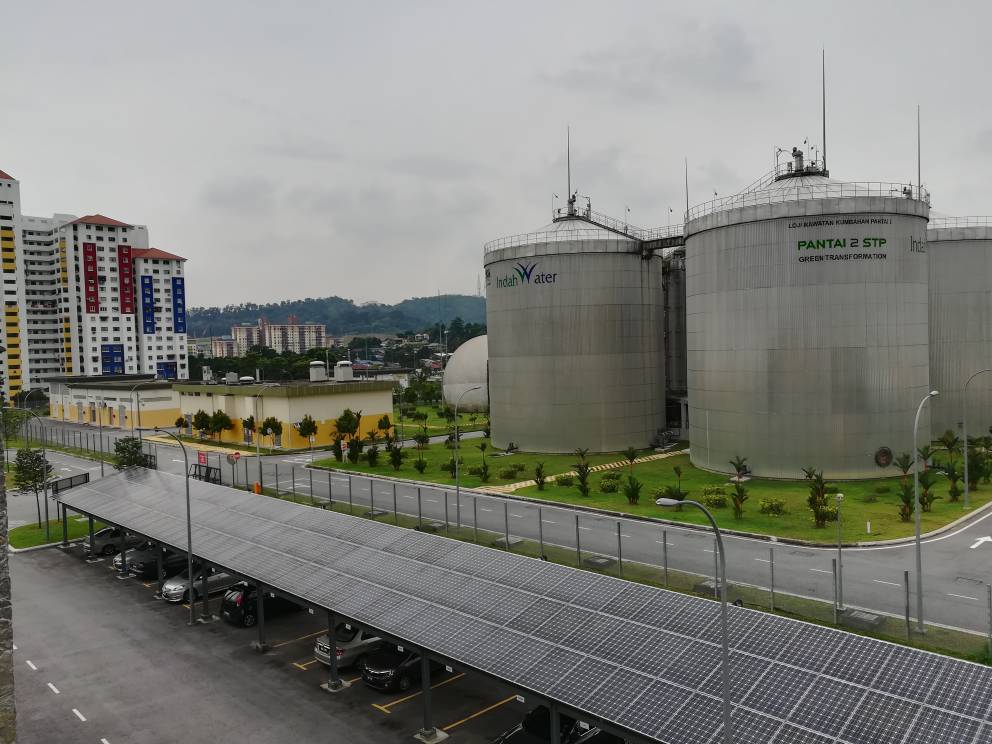
The Pantai 2 Regional Sewage Treatment Plant (RSTP) in Pantai Dalam, Kuala Lumpur.
As the nation’s main operator for sewage treatment, Indah Water Konsortium (IWK) is dedicated in providing the best sewage treatment service possible for the benefit of the country.
Operating in 87 municipalities across the Malaysian peninsula, the government-owned company has been operating sewage plants for many decades.
“IWK handles the operation and maintenance of public sewage systems, septic maintenance and desludging services for unconnected sewage systems, monitoring effluent water quality, research and development (R&D) for the sewage sector, and also helping and consulting the government in planning future sewage systems,” said Shahrul Nizam, Senior Manager of Corporate Communications for IWK toldMalaysian Digest.
With 6,440 sewage plants under its management, IWK is working all-year round to ensure that sewage system in the country is taken care of. However, Shahrul noted that the number of plants will be reduced in the future to reduce the cost of operation and modify to more advanced and automated systems.
This writer visited the Pantai 2 Regional Sewage Treatment Plant (RSTP) in Pantai Dalam, Kuala Lumpur, which was completed in July 2015.
Our readers might be surprised to learn that this plant operated by IWK is the largest and most sophisticated treatment plant in the Asia Pacific region.
It has been upgraded from the previous Pantai 1 RSTP which served the Pantai Catchment, the largest of eight catchment areas in Kuala Lumpur. The catchment covers an area of over 6,700 hectares that includes the central and south-western parts of the city.
Before the construction of Pantai 2 RSTP, there used to be around 200 sewage plants that serve the catchment area. After July 2015, the sewage system in that area is now centralised at Pantai 2 RSTP, with only seven engineers working at a time to ensure smooth operation since the facility is being run with state-of-the-art automation systems.
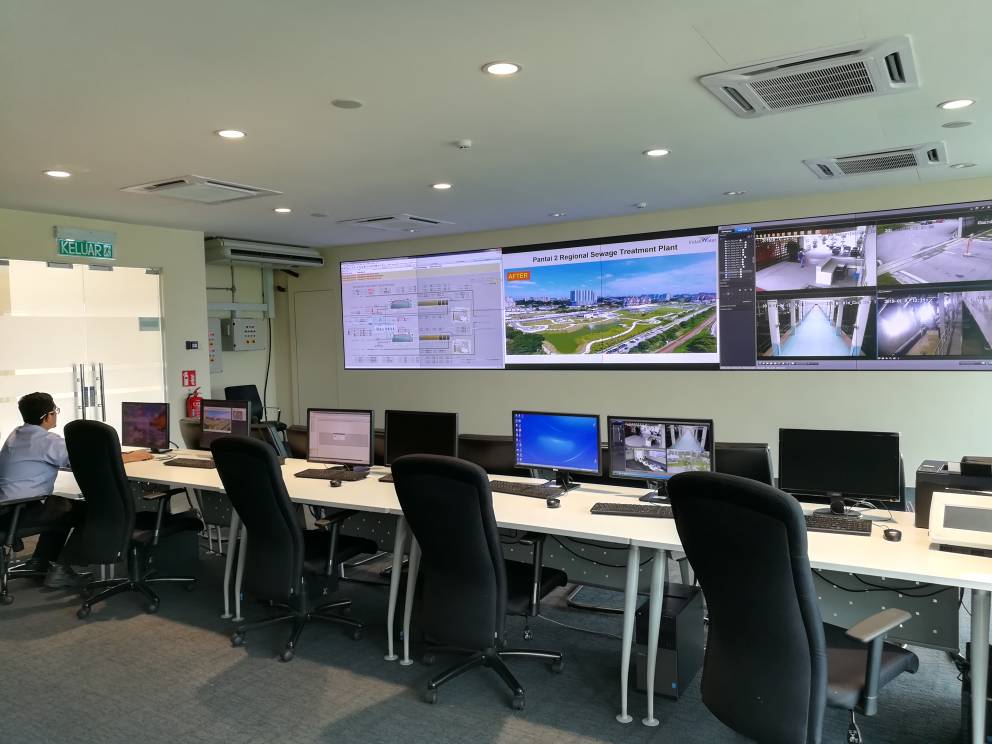
The Supervisory Control and Data Acquisition (SCADA) room, where the engineers can monitor the plant processes and make changes when necessary.
“The Pantai RSTP can serve up to 1.8 million population equivalent (PE) or 405 million litre of raw sewage per day (MLD), with 1.4 million PE being directed to the new Pantai 2 facility and the remaining 0.4 million treated at Pantai 1,” explained Siti Norhafizah, a Treatment Executive handling the facility.
As a modern sewage plant, the RM983-million Pantai 2 RSTP also puts green technology as a priority in its design.
Aside from utilising the most environmentally-friendly equipment and processes possible, some sections of the plant are constructed beneath a public park called the EcoPark, where the public can have their recreational activities there.
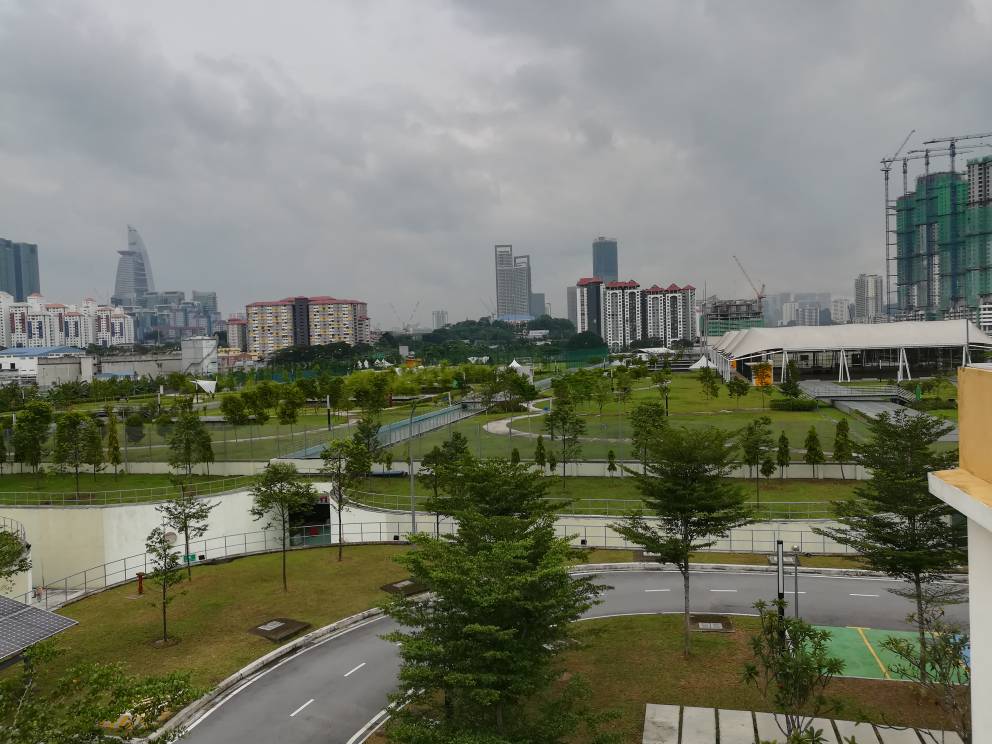
Some parts of the plant are constructed beneath a public park, where the public can do recreational activities and even use the available sports facilities.
The plant utilises the Advanced Anaerobic-Anoxic-Oxic (A2O) process that is more effective than conventional treatment systems in removing nitrogen and phosphorus in wastewater.
“Pantai 2 RSTP does not use any chemicals in our water treatment process. Our treatment uses microorganisms that are present in the sewage where we supply oxygen to the microorganisms, in which it will break down the sewage material.”
In keeping the energy usage and emissions low, the plant is also designed to maximise whatever renewable energy source or water it can find in operating the plant.
“A majority of the treated water from our plant, termed as effluent will be discharged to the Klang river but we harness the small percentage of the effluent to be utilised in plant operations, such as cleaning the tanks, mixing polymers for sludge treatment and to be used in our odour control system, as water plays a huge role in it,” said Norhafizah.
The plant also captures the methane gas that is created as a by-product of the treatment of sewage, and to use it as an alternative energy source for the plant facilites, where it can assist IWK significantly in reducing electrical bills.
“IWK spends close to millions of ringgit per year in electricity bills alone, so any efforts that can reduce our electricity bills will help the company a lot in reducing operating costs,” Shahrul told Malaysian Digest.
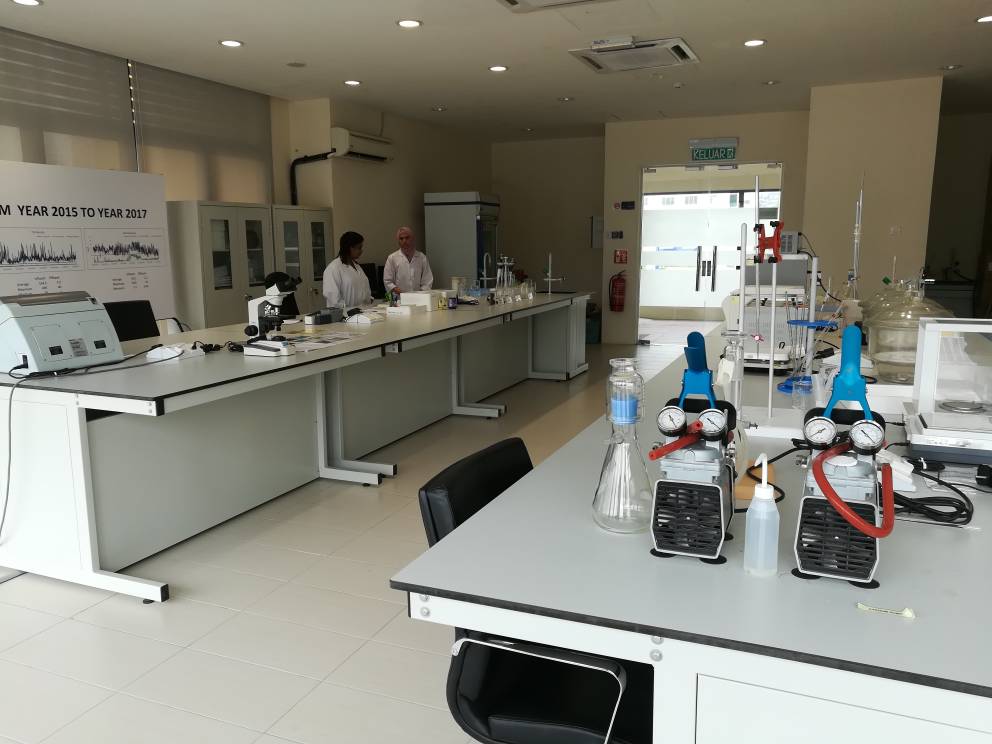
The Pantai 2 RSTP is equipped with a laboratory to inspect the water quality that is processed through the plant.
IWK Aims To Be World-Class, But First Malaysians Need To Pay Their Sewage Bills First
Norhafizah highlighted to Malaysian Digest that the plant often receives so much unwanted garbage in the wastewater discharged from households, such as diapers, condoms, cigarettes and even construction materials.
“The garbage not only makes it harder to treat the wastewater, but it could damage our equipment as well and reducing the effectiveness of the treatment process.”
She urges Malaysians to not treat the sewage system like a trash can, and to start using it responsibly.
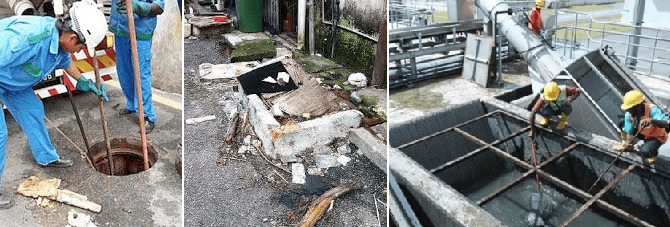
Malaysian throw unwanted garbage into the wastewater discharged from households, such as diapers, condoms, cigarettes and even construction materials.
On the other hand, there are also many cases where customers do not pay their IWK bills on time. Bills for sewage services are just as important as other utilities such as electricy, water, telephone or gas.
“At only RM8 per month, our rate for sewage services is among the cheapest in the world. Hence, there should be no reason for Malaysians not to be able to pay the bills on time,” said Shahrul.
He clarified that Malaysians are charged so low for the sewage services because the government plays an instrumental role in subsiding much of the sewage operation costs.
“If IWK was to charge customers without the help of the government, then it would be around RM20 per month. And that is just to break even with the operating costs of the company, not including profits.”
According to Astro Awani, the government has allocated RM14.23 billion in improving the national sewage system, under the 8th, 9th and 10th Malaysia Plans. In another report, the government also subsidises RM225 million of operating costs per year to lessen the burden of the people and protect the environment. To put in perspective, IWK spends RM800 million just for the maintenance of sewage systems all over the country.
In the future, the company aims to integrate with water supply companies for a more efficient service.
“Our target in the future is to obtain full water-sewage integration. Right now, water companies and sewage treatment operators in Malaysia are still separated, unlike modern countries such as the UK or US which have only one operator for water and sewage treatments,” explained Shahrul.
“The Public Must Realise That All The Wastewater Will Be Returned To The Rivers”
Malaysian Digest also spoke with Yasmin Rasyid, president and founder of EcoKnights, a non-profit organisation that provides development and environmental interventions to communities, government agencies, learning institutes and companies. Established in 2005, EcoKnights aims for sustainable development by working across transdisciplinary fields.
“While we don’t have specific programme on sewage treatment, we do have a programme for rivers, and one of the problematic areas affecting our rivers is sewage that is not treated properly,” said Yasmin.
The organisation is currently taking care of two rivers, Sungai Bunus and Sungai Kerayong, in which both feeds into the Klang river. They coordinate with the local communities and authorities to keep the rivers clean and reduce pollution.
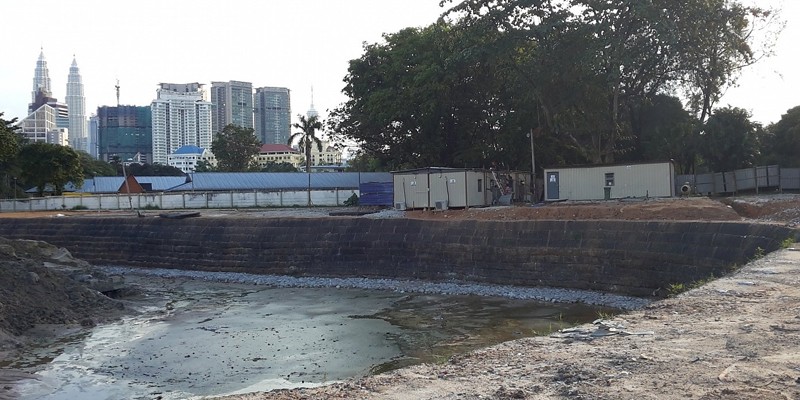
Sungai Bunus is one of the main rivers that feeds into the Klang river.
Yasmin said one of the main sources of untreated sewage is from illegal extension of homes.
“Sometimes when people renovate their homes, they don’t take into account proper modification of their sewage systems, and this can result in sewage leaking out from the sewage systems and flowing into our rivers.
“Besides that, improper sewage piping is also a problem in some areas,” she explained, as some parts of Sungai Bunus are affected by it.
For example, last month, Yasmin reported there was a case of the leak of sewage into the river in the Kampung Boyan area.
EcoKnights often communicate with the Indah Water Konsortium (IWK). Yasmin said that it all comes down to the individual to exercise care for the environment. She highlighted that a lot of the issues on the ground are noticed by the local community and they immediately take their concerns to the IWK.
“So far, IWK takes a very proactive approach on these issues.
“However, there are some areas where we don’t have a chance to communicate with the local community, where people would not even bother to report the issues and I believe that will be very detrimental to the river.”
Besides IWK, EcoKnights also works with the Kuala Lumpur City Hall (DBKL) and other important stakeholders in the Sungai Bunus committee. As a non-governmental organisation, EcoKnights act as a watchdog for the rivers so it is properly cared for and to report any issues to the authorities.
However, Yasmin reminded that their efforts can only focus on two rivers, and many other polluted rivers could remain undetected from sewage problems.
“Currently, there is a very low awareness among Malaysians on the importance of treating sewage properly and the value of proper sewage treatment.
“Let’s look at Singapore, for example. Due to their scarcity of water source, they had to recycle their water supply effectively as a means of self-sustainability. The same situation is not prevalent in Malaysia.”
“The public must realise that all the wastewater will be returned to the rivers and water source through a water or sewage treatment plant. If the water treatment is not handled well, in the end it is the public who will pay the price, due to the polluted waters.”
In order to raise the awareness of the importance of sewage systems, EcoKnights conducts education and community engagement programmes with those who live near rivers, ranging from residential areas to restaurants who operate near the rivers, to treat their wastewater properly.
“We also conduct education programmes in schools and river activities such as tree-planting and cleanups,” Yasmin added.
Concluding, she reminded Malaysian Digest readers that improper sewage treatment will result in poor river quality, the very same source that we harness as our drinking water.
So, let’s stop throwing rubbish into our toilets and start paying our sewage bills on time, for the betterment of our health and environment.
— mD
Source: Malaysian Digest
Share this content
